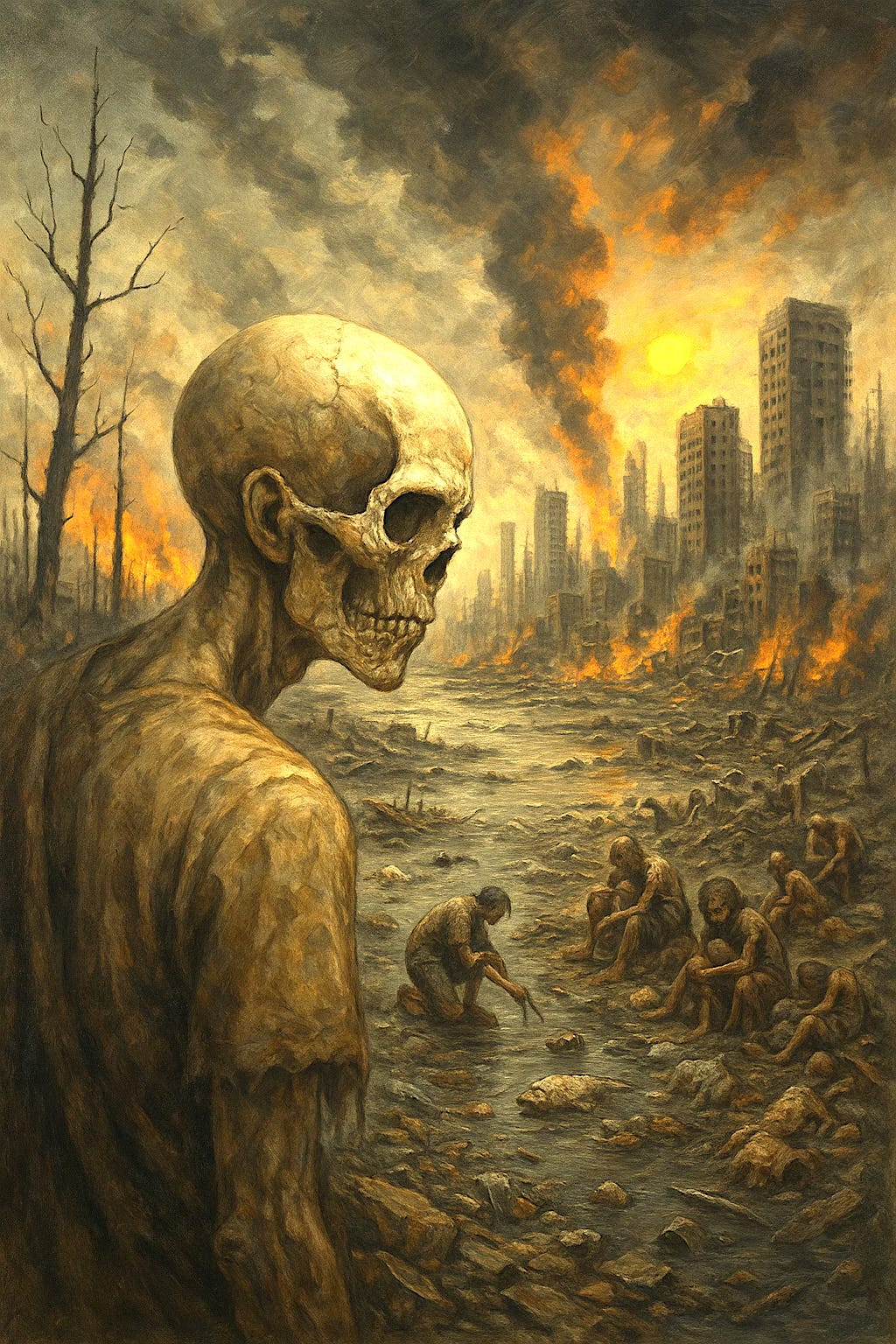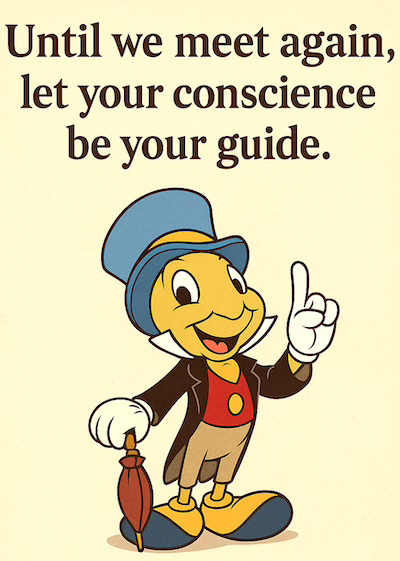Is Humanity A Failed Species?
How Evolution’s Smartest Experiment Became Its Most Dangerous Mistake
This question hangs heavy in the air, particularly during moments when our collective failures feel most acute. Wars rage, ecosystems collapse, inequality deepens. It’s tempting to look at the state of the world and conclude that we’ve fundamentally failed as a species. But this verdict, while emotionally understandable, misses something crucial about what “failure” means when applied to an entire species.
First, we need to ask: failed at what? By the cold metric of evolutionary success, humanity is thriving. We number nearly eight billion, inhabit every continent, and have fundamentally reshaped the planet itself. We’ve eliminated our natural predators and dramatically extended our lifespans. From a purely biological perspective, we’re winning.
But that’s not really what we mean when we ask this question, is it? We’re asking something deeper: have we failed morally? Have we failed to live up to our potential? Have we failed the planet and each other?
The indictment writes itself. We’re the only species that knowingly destroys its own habitat. We’ve triggered what many scientists call the sixth mass extinction. We’ve created weapons capable of annihilating all complex life on Earth. Despite producing enough food to feed everyone, we allow millions to starve. We’ve built systems of extraordinary inequality, where some live in unimaginable luxury while others lack clean water.
We possess unprecedented knowledge about our destructive patterns, yet we continue them. We understand climate change, yet we struggle to change course. We know factory farming causes immense suffering, yet it expands. We recognize that nuclear weapons threaten our existence, yet we maintain massive arsenals.
Perhaps most damningly, we’re capable of such extraordinary cruelty to our own kind. The 20th century alone witnessed genocides, totalitarian regimes, and world wars that killed hundreds of millions. The 21st century, despite our technological marvels, hasn’t solved these fundamental problems.
But here’s the counterargument: we’re also the only species that can ask whether we’ve failed. We’re the only ones who can feel guilt about our impact, who can imagine better futures, who can deliberately change course.
Consider what we’ve accomplished: we’ve eradicated diseases that plagued us for millennia. We’ve created art that moves us to tears, music that transcends language, literature that captures the human condition in all its complexity. We’ve built institutions, however imperfect, dedicated to justice and human rights. We’ve developed the scientific method and used it to understand everything from subatomic particles to the structure of the universe.
We’re capable of extraordinary compassion. People regularly risk their lives for strangers. We’ve created movements for civil rights, environmental protection, and animal welfare. Young people around the world are organizing for change, refusing to accept the failures of previous generations.
And crucially, we’re still here. We haven’t destroyed ourselves yet. We’re grappling with our problems, however imperfectly. The fact that we’re having this conversation, that we’re worried about our failures, is itself a sign of moral awareness that no other species possesses.
Perhaps the real answer is that we’re not a failed species, but an incomplete one. We’re a work in progress, caught in the awkward adolescence between our evolutionary programming and our aspirations for something better.
We evolved to prioritize our immediate tribe, but we now live in a global civilization where distant strangers’ actions affect us profoundly. Our brains developed to handle immediate threats, not abstract long-term dangers. We’re running modern civilization on ancient hardware, and the bugs are showing.
But we’re also the only species capable of transcending our programming. We can recognize our cognitive biases and work to overcome them. We can build systems that compensate for our individual weaknesses. We can teach each other to be better than our instincts would make us.
If we’re not a failed species, then what are we? We’re a species at a crossroads. We have the knowledge and technology to create a sustainable, just civilization. We also have the capacity to render ourselves extinct. The next century will likely determine which path we take.
The real question isn’t whether humanity has failed, but whether we will fail. That outcome isn’t predetermined. It depends on choices we make individually and collectively, starting now.
Every person who chooses compassion over cruelty, every community that builds resilience, every movement that pushes for justice, every innovation that solves rather than creates problems moves us incrementally toward success. The work is enormous, the odds sometimes feel impossible, but the story isn’t over.
So is humanity a failed species? Not yet. But we’re on thin ice, and the water below is very cold. What we do next matters more than anything we’ve done before. The species that can ask this question is also the species that can answer it with action.
The verdict is still out, and we’re the jury.




It infuriates me that a tiny group of techbros and whackjobs decided none of us are going to have a democracy anymore.
How would you suggest we navigate through this evolutionary bottleneck?